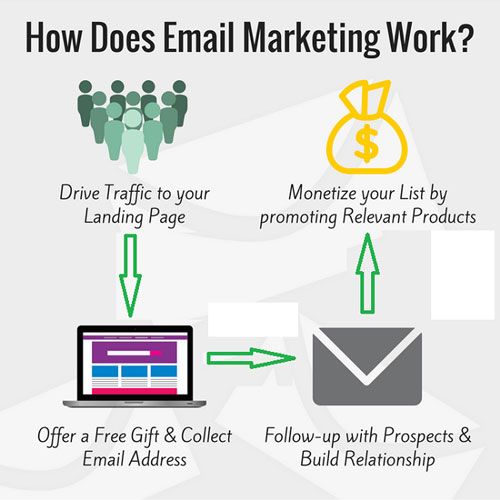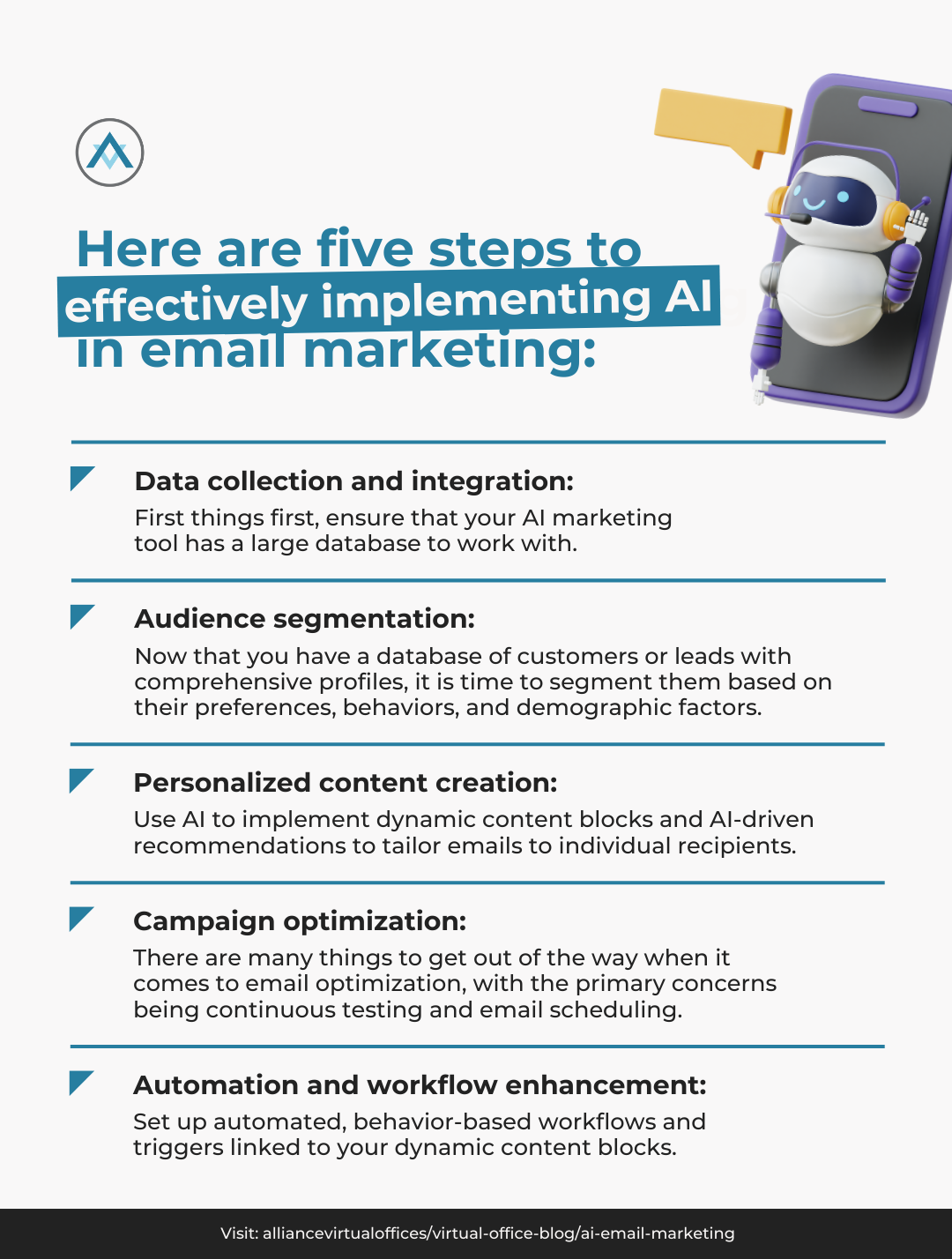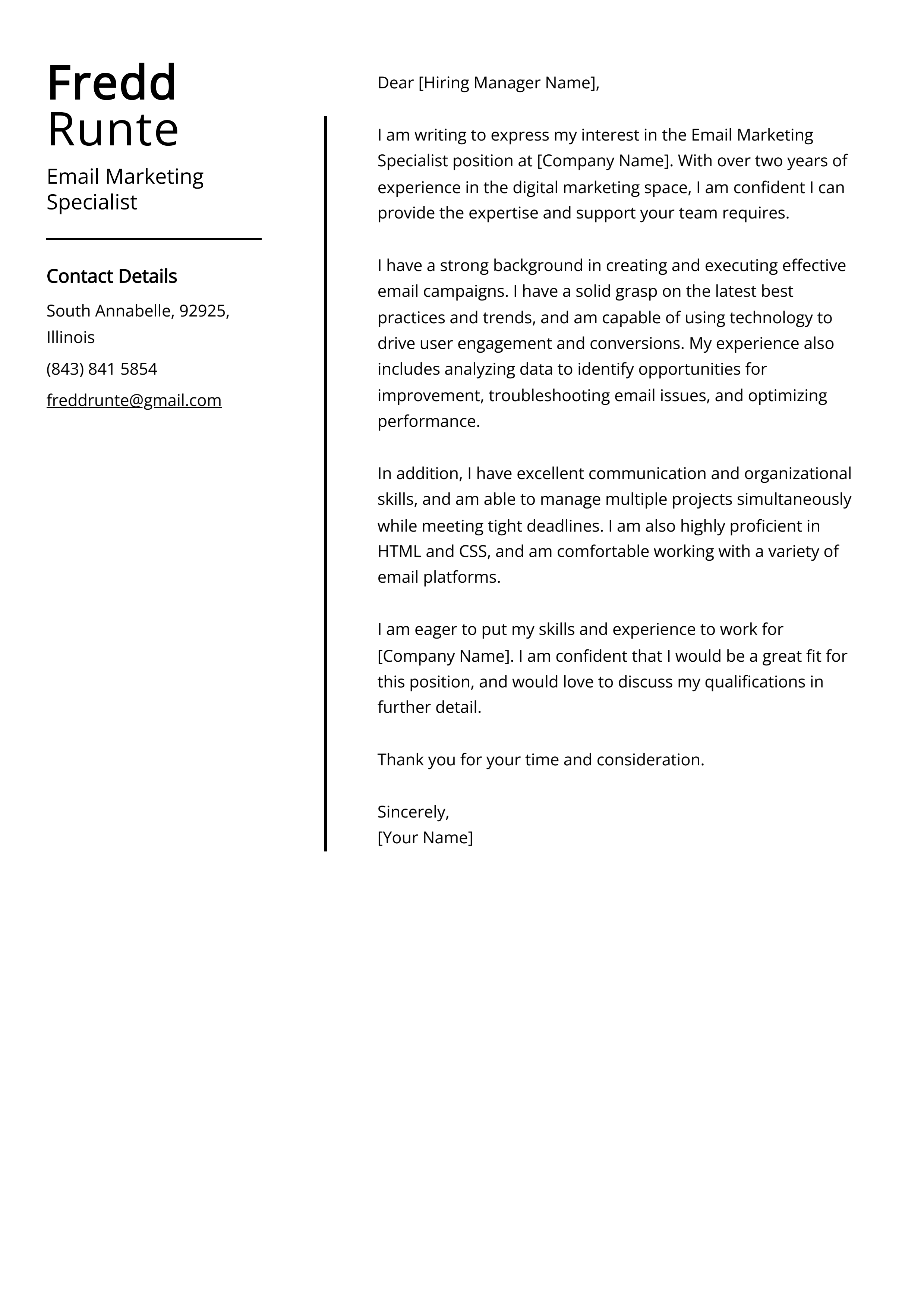Imagine waking up to find your inbox filled with emails. Some you quickly delete, while others grab your attention.
Have you ever wondered why certain emails pique your interest? This is the magic of effective email marketing. But does it still work in today’s fast-paced digital landscape? You might be questioning if it’s worth your time and investment. We’ll delve into the power and potential of email marketing.
Discover how it can be a game-changer for your business, helping you connect with your audience in meaningful ways. Uncover the strategies that ensure your emails don’t just end up in the trash, but instead, drive engagement and boost your success. Keep reading to unlock the secrets of successful email campaigns and see how they can transform your marketing approach.

Credit: www.deskera.com
The Evolution Of Email Marketing
Email marketing continues to be a powerful tool for businesses. Its evolution has made it more effective and efficient. Understanding its history helps us appreciate its current impact.
From Traditional To Digital
Early email marketing resembled traditional mail campaigns. Businesses sent generic messages to broad lists. This approach lacked personalization and engagement. As technology advanced, email marketing shifted. It became more targeted and data-driven. Marketers now tailor messages to specific audiences. They use customer preferences and behaviors to enhance relevance.
Technological Advancements
Technology has played a key role in email marketing’s growth. Automation tools allow businesses to schedule and send emails effortlessly. Data analytics provide insights into customer interactions. This helps refine strategies for better results. Improved design tools enhance email visuals. Eye-catching designs increase engagement and readability. Spam filters have also evolved. They ensure emails reach the intended audience’s inbox.

Credit: www.alliancevirtualoffices.com
Current Trends In Email Marketing
Email marketing remains a vital tool in the digital age. Its effectiveness depends on adapting to current trends. Businesses must stay updated to engage their audience effectively. Let’s explore some of these trends shaping email marketing today.
Personalization Strategies
Personalization in emails is essential. It goes beyond just using the recipient’s name. Tailor content to individual preferences and behaviors. This makes emails feel more relevant. Segment your audience based on interests or past interactions. Personalized emails see higher open and click rates. They build a stronger connection with the reader.
Automation And Ai Integration
Automation saves time and increases efficiency. Use automated emails to nurture leads or engage customers. Set triggers based on user actions. This ensures timely and relevant communication. AI tools enhance personalization and predict customer needs. They analyze data to optimize email content and timing. AI can help in crafting subject lines and improve overall performance.
Benefits Of Email Marketing
Email marketing remains effective today. It offers a direct line to your audience, ensuring personalized communication. Plus, it’s cost-efficient, reaching a wide audience quickly.
Email marketing has stood the test of time, proving to be an invaluable tool for businesses of all sizes. Its ability to directly reach customers and maintain engagement is unparalleled. If you’re wondering whether to invest your efforts in email marketing, consider the array of benefits it offers.Cost-effectiveness
Email marketing is a budget-friendly strategy. You don’t need a huge budget to kickstart your campaign. With platforms offering free plans and affordable options, even small businesses can leverage this tool effectively. Think about how much you spend on traditional advertising. Email marketing allows you to reach thousands of people without breaking the bank. This cost-efficiency is what makes email marketing an attractive choice for startups and small businesses. Can you imagine getting a high return on investment with minimal spending? That’s what email marketing offers. With careful planning and execution, you can see significant returns from your campaigns.Direct Communication
Emails land straight in your customers’ inboxes, ensuring direct and personal communication. Unlike social media, where posts might get lost in the feed, emails are more likely to be seen. You can tailor your messages to specific audiences. This means you can address the unique needs and interests of your customers. This level of personalization enhances customer relationships and boosts engagement. Isn’t it satisfying to receive a message that speaks directly to you? That’s the power of direct communication. By segmenting your audience and crafting personalized content, you can create meaningful connections with your subscribers. Email marketing allows for real-time communication. You can send timely updates, special offers, or even just a friendly hello. This immediacy helps keep your brand at the forefront of your customers’ minds. In conclusion, the benefits of email marketing are clear. Its cost-effectiveness and direct communication capabilities make it a must-have tool in your marketing arsenal. So, why not harness the power of email marketing today?Challenges Facing Email Marketing
Email marketing faces many challenges today. It’s not just about sending emails. It’s about making sure they reach the right people. Many hurdles can stand in the way of effective email campaigns. These challenges can impact how well your messages perform. Understanding these challenges is key to improving your email marketing efforts.
Spam Filters And Deliverability
Spam filters are a big obstacle in email marketing. They aim to protect inboxes from unwanted messages. But they can also block legitimate emails. This affects your deliverability rates. Marketers need to create emails that pass these filters. Using clear subject lines helps. Avoiding spammy words is also crucial. Regularly checking your emails can improve deliverability.
Audience Saturation
Many people receive countless emails daily. This leads to audience saturation. It becomes harder to grab attention. Your emails compete with many others. Quality content is important to stand out. Personalizing messages can make a difference. Sending emails at the right time also helps. Knowing your audience’s preferences is key.
Strategies For Effective Email Campaigns
Email marketing remains effective today by engaging audiences with personalized content. Crafting clear subject lines and compelling calls-to-action boosts open rates. Consistent scheduling and analyzing results help refine strategies for better engagement.
Email marketing remains a powerful tool in today’s digital world. To make it effective, you need strategic planning. This involves crafting content that speaks to your audience. It also means targeting specific groups with precision. Let’s explore these strategies to enhance your email campaigns.Crafting Compelling Content
Content is the heart of email marketing. Use clear and concise language. Capture your reader’s attention with catchy subject lines. Use a friendly tone. Personalize your emails with the recipient’s name. This builds a personal connection. Include a call-to-action. Encourage readers to take the next step. Visual elements like images can make your emails appealing. But, keep them relevant and not overwhelming.Segmentation And Targeting
Segmentation is dividing your email list into smaller groups. Each group should have similar interests or behaviors. This allows you to send tailored content to each group. Targeting means reaching the right audience at the right time. Use data to understand your audience’s preferences. Customize your messages to meet their needs. This increases engagement and conversion rates. It also helps in building trust with your subscribers.Measuring Success In Email Marketing
Email marketing is not just about sending messages. It’s about understanding how well these messages perform. Measuring success in email marketing helps you know what works and what doesn’t. It’s like a compass guiding you to improve your strategy and achieve your goals. But how do you measure success effectively? Let’s dive into the key metrics you should track and how to analyze your campaign performance.
Key Metrics To Track
Tracking the right metrics is crucial. It’s easy to get lost in numbers, but focusing on key indicators can provide clarity.
- Open Rate: This tells you how many people actually open your emails. If your open rate is low, consider tweaking your subject lines.
- Click-Through Rate (CTR): This measures how many recipients click on links within your email. A high CTR means your content resonates with your audience.
- Conversion Rate: This metric shows how many people take the desired action after clicking through your email. It’s the ultimate measure of effectiveness.
- Bounce Rate: Indicates how many emails couldn’t be delivered. A high bounce rate might suggest issues with your email list quality.
- Unsubscribe Rate: While it’s natural to have some unsubscribes, a spike may indicate your content isn’t meeting expectations.
Each of these metrics offers insights into different aspects of your email marketing strategy. But numbers alone don’t tell the whole story.
Analyzing Campaign Performance
Analyzing the performance of your campaigns goes beyond just looking at metrics. It’s about understanding the story they tell.
Imagine your last email campaign had a high open rate but a low conversion rate. What does that mean? Perhaps your subject line was catchy, but the content didn’t deliver.
Use A/B testing to refine your approach. Test different subject lines, content formats, and calls-to-action. This helps you learn what your audience prefers.
Consider segmenting your email list. Tailor your messages to different groups based on their interests and behaviors. This personalization can significantly boost engagement.
Reflect on your email design and timing. Are your emails visually appealing? Do they arrive when your audience is most likely to read them?
Finally, ask yourself: What do these results mean for your overall strategy? Use insights from each campaign to continuously improve and adapt.
How do you measure your email marketing success? Are there metrics you find more valuable than others? Share your thoughts and experiences below!
Future Of Email Marketing
As we stand on the brink of a digital revolution, you might wonder if email marketing still holds its ground. The answer is a resounding yes. Email marketing is evolving, adapting to new technologies and changing consumer behaviors. Its future is bright and promising.
Emerging Technologies
Technology is reshaping email marketing in ways we never imagined. Automation and artificial intelligence are leading the charge. These tools help you send personalized emails that resonate with your audience. Imagine knowing exactly what your subscribers want before they even tell you. AI can predict consumer preferences, allowing you to craft tailored content.
Interactive emails are another game-changer. They transform the passive reading experience into an engaging one. You can add polls, videos, and surveys directly into your emails. This can boost engagement and keep your audience hooked. The question is, are you ready to embrace these changes?
Adapting To Consumer Behavior
Understanding how consumers interact with emails is crucial. People’s attention spans are shorter, and they crave instant gratification. You need to adapt by creating concise, impactful messages. Use clear calls-to-action that encourage quick responses.
Mobile devices are the primary means of accessing emails today. Your emails must be optimized for mobile viewing. If they’re not, you’re missing out on potential engagement. Think about your own experience—how often do you check your email on your phone?
Personalization is key. Consumers expect messages tailored to their preferences. Generic emails are likely to be ignored. Use data analytics to understand your audience better and deliver relevant content. This can significantly improve your email open rates.
Email marketing is far from obsolete. With emerging technologies and a keen understanding of consumer behavior, you can create campaigns that not only work but thrive. Are you prepared to take your email marketing to the next level?

Credit: resumaker.ai
Frequently Asked Questions
Is Email Marketing Working?
Yes, email marketing is effective. It offers high ROI, builds customer relationships, and drives conversions. Personalization and targeted campaigns enhance engagement. Businesses can reach a large audience cost-effectively. Regular analysis and optimization improve results. Email marketing remains a valuable tool for businesses of all sizes.
Is Mail Marketing Still Effective?
Yes, mail marketing remains effective. It offers high ROI, personalized communication, and builds customer relationships. Businesses can reach targeted audiences directly. With strategic planning and engaging content, email marketing can drive conversions and increase brand loyalty. It’s a cost-effective tool for boosting sales and enhancing customer engagement.
Is Email Marketing Dead Or Not?
Email marketing is not dead. It remains a powerful tool for engagement and conversion. Businesses continue to see positive results. Personalization and automation enhance effectiveness. Email marketing offers high ROI, making it indispensable. Adapting strategies keeps it relevant.
Do People Still Use Email Marketing?
Yes, email marketing is still widely used today. It remains a powerful tool for businesses. Email marketing offers direct communication, high ROI, and personalization. Many companies leverage it for promotions, newsletters, and customer engagement. Its effectiveness continues to drive its popularity among marketers worldwide.
Conclusion
Email marketing remains effective in today’s digital world. It reaches audiences directly. Builds relationships. Drives conversions. Adapts to trends and technology. Email campaigns offer a cost-effective strategy. They provide measurable results. Personalization boosts engagement. Segmenting lists targets specific groups. This enhances relevance and impact.
Tracking tools refine strategies. They improve future campaigns. Email marketing is dynamic. It’s still a key tool for businesses. With careful planning, it stays powerful. Keep messages clear and concise. Focus on value and relevance. Email marketing works. It’s here to stay.


